Online Class: Assessment and Evaluation in Education

no certificate
with CEU Certificate*
-
15Lessons
-
22Exams &
Assignments -
6Hours
average time -
0.6CEUs
Course Description
Step into a world where assessment in education becomes an art, a science, and an essential foundation for creating equitable learning experiences. "Assessment and Evaluation in Education" is not just a course; it is a transformative journey that will empower you to navigate, redefine, and revolutionize educational assessments. In a rapidly evolving educational landscape, where the traditional methods no longer suffice, this course stands out as a beacon of innovation and excellence. It calls out to educators, administrators, and anyone passionate about making meaningful changes in education, offering them the tools and insights necessary to close the gap between student potential and student performance.
Imagine standing at the forefront of educational transformation. What if you could assess not just rote knowledge but the critical thinking, creativity, and problem-solving skills that our future demands? This course will take you there. As you dive into the nuanced world of student assessment, you'll explore the evolution of educational evaluation from ancient oral exams to cutting-edge data-driven selections. This journey is emblematic of society's broader transitions and the technological advancements defining our era. With each lesson, you'll gain a deeper understanding of how assessments have democratized education, opening doors to all, regardless of background.
Knowledge, however, is only part of the equation. Practically integrating formative, summative, and diagnostic methods into educational strategies requires a deft touch--a skill you will master here. You will learn to design adaptable educational frameworks that aren't just inclusive but celebrate diversity, nurturing each student's unique potential. This is not education as usual; this is education that transforms lives, fueled by the power of fair, valid, and reliable assessments.
But there's more. In a world growing increasingly digital, the real magic happens when technology meets education. You'll discover how to harness adaptive learning technologies to craft personalized educational experiences that resonate with every student. This innovation propels learning beyond the boundaries of traditional assessments, creating a dynamic interplay where students are not just passive recipients but active architects of their learning journey.
The course also addresses the ethical dimensions of educational assessment. We dive deep into the discussions on fairness, accessibility, and cultural sensitivity. This discourse empowers you to create assessments that do more than judge--they nurture and inspire. We'll explore how to align assessments with students' diverse backgrounds, ensuring that every evaluation is a stepping stone to success, not a barrier to overcome. Here, you will build trust with learners and their families, creating a supportive environment where true potential can shine.
Feedback, often the unsung hero of learning, takes center stage in our discussions. You'll uncover strategies to use feedback as a transformative tool, offering actionable insights that propel students forward. Through a variety of feedback types--be it immediate corrective insights, descriptive narratives, or peer reviews--students will find themselves equipped to turn areas of improvement into triumphant success.
Now imagine yourself, equipped with all these insights and skills, standing ready to reimagine educational assessments. You're not just prepared to navigate existing systems; you're ready to lead the charge towards a future where assessments are comprehensive, inclusive, and constructive, serving as strong pillars supporting students on their educational journeys.
Choosing to enroll in "Assessment and Evaluation in Education" is more than simply taking another online class; it's about stepping into a role where you play an essential part in framing the future of education. This course promises a journey of personal and professional transformation, providing unparalleled value and insight that set you apart in an ever-evolving educational landscape.
Embrace this opportunity. Make the decision that sets your path towards innovation and equity in education--a path where every student is seen, supported, and celebrated. Be part of a community that believes in the power of education to change lives and societies--for good. Your journey begins here, and the future of education awaits your contribution.
- Completely Online
- Self-Paced
- 6 Months to Complete
- 24/7 Availability
- Start Anytime
- PC & Mac Compatible
- Android & iOS Friendly
- Accredited CEUs

Course Lessons
Lesson 1. Navigating the Complexities of Student Assessment and Evaluation
 Lesson discussions: Reasons for Taking this Course
Lesson discussions: Reasons for Taking this Course Complete: Lesson 1 Activity
Complete: Lesson 1 Activity Assessment: Lesson 1 Review Exam
Assessment: Lesson 1 Review Exam
Lesson 2. From Oral Exams to Data-Driven Selections: The Evolution of Educational Assessments
 Complete: Lesson 2 Activity
Complete: Lesson 2 Activity Assessment: Lesson 2 Review Exam
Assessment: Lesson 2 Review Exam
Lesson 3. Dynamic Assessment: Integrating Formative, Summative, and Diagnostic Methods
 Complete: Lesson 3 Activity
Complete: Lesson 3 Activity Assessment: Lesson 3 Review Exam
Assessment: Lesson 3 Review Exam
Lesson 4. The Bedrock of Fair Assessments: Insights into Validity and Reliability
 Complete: Lesson 4 Activity
Complete: Lesson 4 Activity Assessment: Lesson 4 Review Exam
Assessment: Lesson 4 Review Exam
Lesson 5. Challenges of Testing in Today's Educational Landscape
 Assessment: Lesson 5 Review Exam
Assessment: Lesson 5 Review Exam
Lesson 6. Rubrics: Mapping Excellence in Student Work
 Assessment: Lesson 6 Review Exam
Assessment: Lesson 6 Review Exam
Lesson 7. Shifting Paradigms: Innovative Assessments in Modern Education
 Complete: Lesson 7 Activity
Complete: Lesson 7 Activity Assessment: Lesson 7 Review Exam
Assessment: Lesson 7 Review Exam
Lesson 8. Assessment Evolution: Integrating Technology for Personalized Learning
 Complete: Lesson 8 Activity
Complete: Lesson 8 Activity Assessment: Lesson 8 Review Exam
Assessment: Lesson 8 Review Exam
Lesson 9. Data Empowerment: Unleashing Student Potential
 Assessment: Lesson 9 Review Exam
Assessment: Lesson 9 Review Exam
Lesson 10. Ethical Considerations in Educational Assessment
 Complete: Lesson 10 Activity
Complete: Lesson 10 Activity Assessment: Lesson 10 Review Exam
Assessment: Lesson 10 Review Exam
Lesson 11. Assessing Diverse Learners with Cultural Sensitivity
 Assessment: Lesson 11 Review Exam
Assessment: Lesson 11 Review Exam
Lesson 12. Navigating the Impact of Feedback on Student Learning: A Comprehensive Guide
 Assessment: Lesson 12 Review Exam
Assessment: Lesson 12 Review Exam
Lesson 13. Enhancing Learning Outcomes Through Innovative Assessment Design
 Assessment: Lesson 13 Review Exam
Assessment: Lesson 13 Review Exam
Lesson 14. The Future of Educational Assessments
 Assessment: Lesson 14 Review Exam
Assessment: Lesson 14 Review Exam
Lesson 15. Guidelines for Equitable Student Evaluation
 Lesson discussions: End of Course Poll; Course Comments
Lesson discussions: End of Course Poll; Course Comments Assessment: Lesson 15 Review Exam
Assessment: Lesson 15 Review Exam
Learning Outcomes
- Define the different types of assessments, including formative, summative, diagnostic, and criterion-based, and explain their unique roles in the educational process.
- Describe how holistic assessment integrates cognitive, affective, and psychomotor data points to provide a comprehensive evaluation of learner achievement.
- Analyze how contemporary assessment practices incorporate technological advancements and pedagogical theories to enhance educational equity and accountability in a 21st-century global context.
- Describe the evolution of educational assessments and their impact on societal structures, highlighting key historical milestones and theoretical contributions in 25 words.
- Demonstrate how to integrate formative, summative, and diagnostic assessments to create a holistic view of student achievement.
- Recognize and describe the key differences between formative, summative, and diagnostic assessments in educational settings.
- Define and differentiate between the concepts of validity and reliability in educational assessments by providing examples for each type.
- Organize and align assessments with learning outcomes and standards to ensure they accurately reflect student comprehension and progression through the curriculum.
- Analyze the benefits and challenges of standardized testing in educational systems by evaluating its impact on student assessment and educational policy.
- Identify the historical evolution and primary goals of standardized testing in education by summarizing key developments and their implications.
- Demonstrate how to use checklists and rubrics to self-assess and improve academic project quality by identifying strengths and areas for development in their work.
- Recognize the components of a well-designed rubric, including task description, scoring scale, traits, and performance descriptors, by examining diverse example rubrics.
- Recognize the historical shift from traditional to innovative assessments and its impact on educational outcomes and student engagement
- Demonstrate mastery of lesson content at levels of 70% or higher.
Additional Course Information

- Document Your Lifelong Learning Achievements
- Earn an Official Certificate Documenting Course Hours and CEUs
- Verify Your Certificate with a Unique Serial Number Online
- View and Share Your Certificate Online or Download/Print as PDF
- Display Your Certificate on Your Resume and Promote Your Achievements Using Social Media

Choose Your Subscription Plan
No Certificate / No CEUs
This course only
| Includes certificate | X |
| Includes CEUs | X |
| Self-paced |

|
| Instructor support |

|
| Time to complete | 6 months |
| No. of courses | 1 course |
Certificate & CEUs
This course only
| Includes certificate |

|
| Includes CEUs |

|
| Self-paced |

|
| Instructor support |

|
| Time to complete | 6 months |
| No. of courses | 1 course |
Certificates & CEUs
Includes all 600+ courses
| Includes certificate |

|
| Includes CEUs |

|
| Self-paced |

|
| Instructor support |

|
| Time to complete | 12 Months |
| No. of courses | 600+ |
Certificates & CEUs
Includes all 600+ courses
| Includes certificate |

|
| Includes CEUs |

|
| Self-paced |

|
| Instructor support |

|
| Time to complete | 24 Months |
| No. of courses | 600+ |
Related Courses
-
 4 hours
0.4 CEUs
Utilizing Open Educational Resources
+ More Info
4 hours
0.4 CEUs
Utilizing Open Educational Resources
+ More Info
-
 5 hours
0.5 CEUs
Engaging Families in the Educative Process
+ More Info
5 hours
0.5 CEUs
Engaging Families in the Educative Process
+ More Info
-
 4 hours
0.4 CEUs
Educational Equity and Justice
+ More Info
4 hours
0.4 CEUs
Educational Equity and Justice
+ More Info
-
 4 hours
0.4 CEUs
Global Competence in a Changing World
+ More Info
4 hours
0.4 CEUs
Global Competence in a Changing World
+ More Info
-
 3 hours
0.3 CEUs
Education Policy and Reform: Impact and Implications
+ More Info
3 hours
0.3 CEUs
Education Policy and Reform: Impact and Implications
+ More Info
-
 3 hours
0.3 CEUs
Holistic Approaches to Education
+ More Info
3 hours
0.3 CEUs
Holistic Approaches to Education
+ More Info
-
 3 hours
0.3 CEUs
Improving Teacher Retention and Sustainability
+ More Info
3 hours
0.3 CEUs
Improving Teacher Retention and Sustainability
+ More Info
-
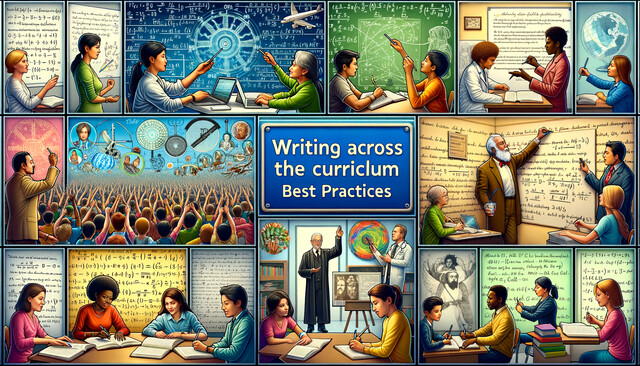 3 hours
0.3 CEUs
Writing Across the Curriculum: Best Practices
+ More Info
3 hours
0.3 CEUs
Writing Across the Curriculum: Best Practices
+ More Info
-
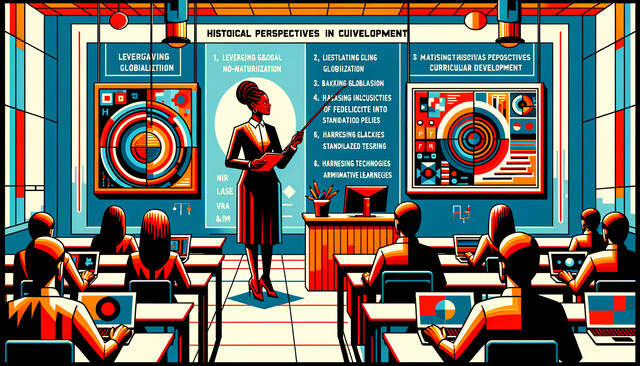 3 hours
0.3 CEUs
Historical Perspectives in Curriculum Development
+ More Info
3 hours
0.3 CEUs
Historical Perspectives in Curriculum Development
+ More Info
-
 5 hours
0.5 CEUs
Using Research to Inform Teaching Practices
+ More Info
5 hours
0.5 CEUs
Using Research to Inform Teaching Practices
+ More Info
-
 3 hours
0.3 CEUs
Building Resilience in Students
+ More Info
3 hours
0.3 CEUs
Building Resilience in Students
+ More Info
-
 3 hours
0.3 CEUs
Designing STEM Curriculum
+ More Info
3 hours
0.3 CEUs
Designing STEM Curriculum
+ More Info
-
 6 hours
0.6 CEUs
Fostering a Growth Mindset in Students
+ More Info
6 hours
0.6 CEUs
Fostering a Growth Mindset in Students
+ More Info
-
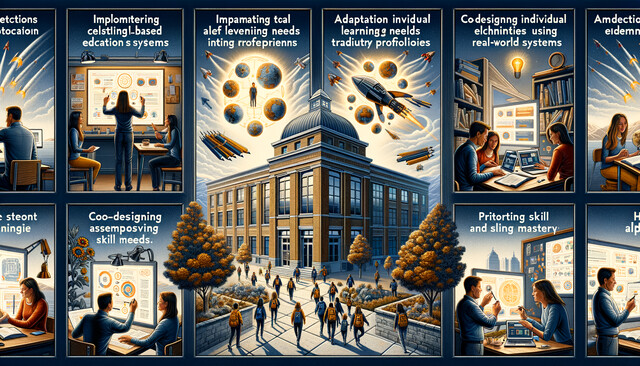 4 hours
0.4 CEUs
Implementing Competency-Based Education Systems
+ More Info
4 hours
0.4 CEUs
Implementing Competency-Based Education Systems
+ More Info
-
 3 hours
0.3 CEUs
Preparing Students for Careers of the Future
+ More Info
3 hours
0.3 CEUs
Preparing Students for Careers of the Future
+ More Info
-
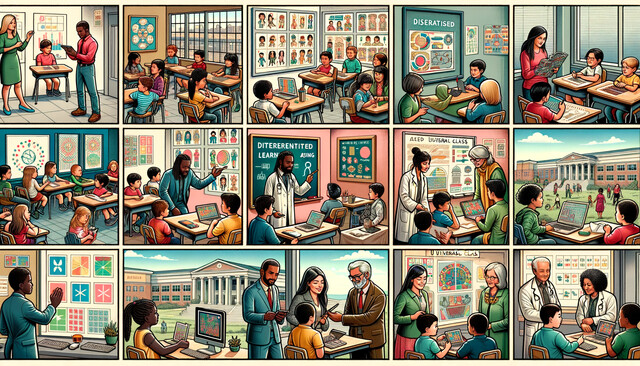 6 hours
0.6 CEUs
Differentiated Instruction Techniques
+ More Info
6 hours
0.6 CEUs
Differentiated Instruction Techniques
+ More Info
-
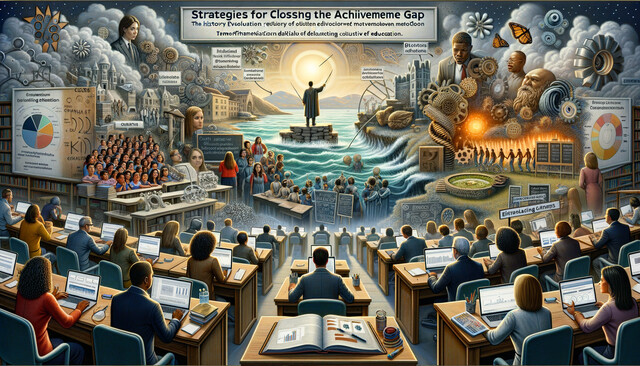 4 hours
0.4 CEUs
Developing Emotional Intelligence in Educators
+ More Info
4 hours
0.4 CEUs
Developing Emotional Intelligence in Educators
+ More Info
-
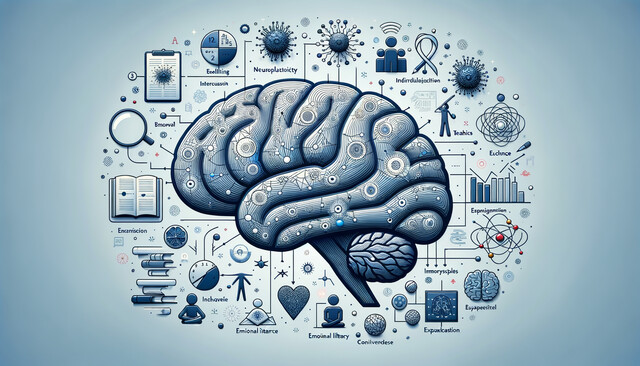 5 hours
0.5 CEUs
Understanding Educational Neuroscience
+ More Info
5 hours
0.5 CEUs
Understanding Educational Neuroscience
+ More Info
-
 7 hours
0.7 CEUs
Leadership in Educational Settings
+ More Info
7 hours
0.7 CEUs
Leadership in Educational Settings
+ More Info
-
 5 hours
0.5 CEUs
Empowering Student Voice through Leadership
+ More Info
5 hours
0.5 CEUs
Empowering Student Voice through Leadership
+ More Info
-
 7 hours
0.7 CEUs
Integrating Arts into the Curriculum
+ More Info
7 hours
0.7 CEUs
Integrating Arts into the Curriculum
+ More Info
-
 7 hours
0.7 CEUs
Civic Education and Engagement
+ More Info
7 hours
0.7 CEUs
Civic Education and Engagement
+ More Info
-
 4 hours
0.4 CEUs
Designing Experiential Learning Opportunities
+ More Info
4 hours
0.4 CEUs
Designing Experiential Learning Opportunities
+ More Info
-
 4 hours
0.4 CEUs
Implementing Project-Based Learning
+ More Info
4 hours
0.4 CEUs
Implementing Project-Based Learning
+ More Info
-
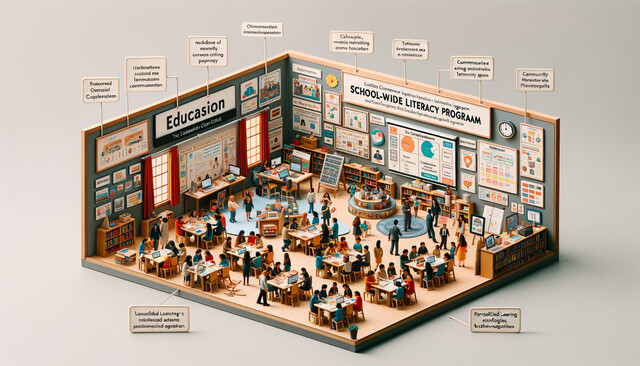 5 hours
0.5 CEUs
Implementing School-Wide Literacy Programs
+ More Info
5 hours
0.5 CEUs
Implementing School-Wide Literacy Programs
+ More Info
-
 5 hours
0.5 CEUs
Advanced Pedagogical Techniques
+ More Info
5 hours
0.5 CEUs
Advanced Pedagogical Techniques
+ More Info
-
 5 hours
0.5 CEUs
Mentoring and Coaching New Teachers
+ More Info
5 hours
0.5 CEUs
Mentoring and Coaching New Teachers
+ More Info
-
 6 hours
0.6 CEUs
Social and Emotional Learning: Programs and Practices
+ More Info
6 hours
0.6 CEUs
Social and Emotional Learning: Programs and Practices
+ More Info
-
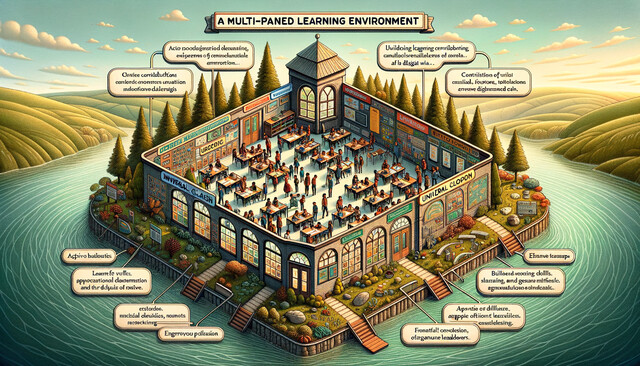 6 hours
0.6 CEUs
Building Effective Parent-Teacher Partnerships
+ More Info
6 hours
0.6 CEUs
Building Effective Parent-Teacher Partnerships
+ More Info
-
 7 hours
0.7 CEUs
Understanding Learning Styles and Preferences
+ More Info
7 hours
0.7 CEUs
Understanding Learning Styles and Preferences
+ More Info
-
 7 hours
0.7 CEUs
Aligning Curriculum with State Standards
+ More Info
7 hours
0.7 CEUs
Aligning Curriculum with State Standards
+ More Info
-
 4 hours
0.4 CEUs
Enhancing Student Engagement and Motivation
+ More Info
4 hours
0.4 CEUs
Enhancing Student Engagement and Motivation
+ More Info
-
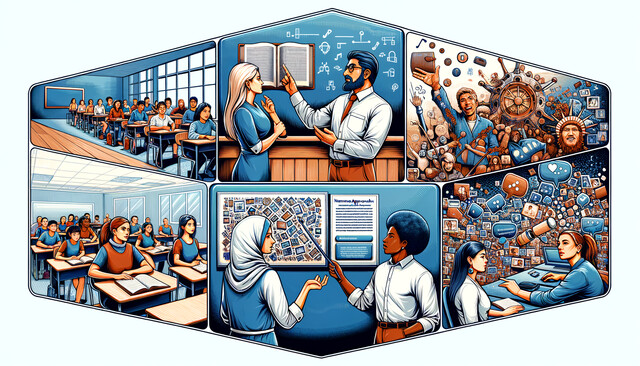 6 hours
0.6 CEUs
Narrative Approaches in Education
+ More Info
6 hours
0.6 CEUs
Narrative Approaches in Education
+ More Info
-
 4 hours
0.4 CEUs
Innovative Curriculum Design for the 21st Century
+ More Info
4 hours
0.4 CEUs
Innovative Curriculum Design for the 21st Century
+ More Info
-
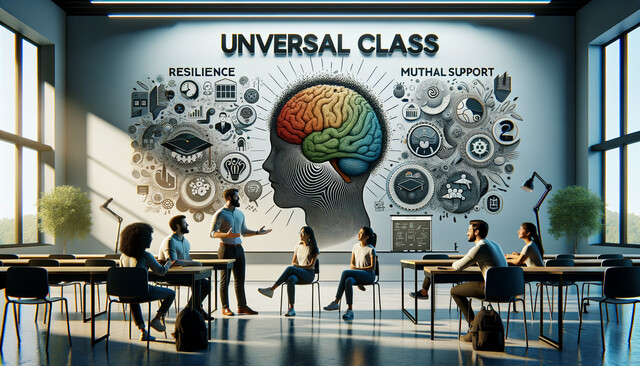 4 hours
0.4 CEUs
Facilitating Online and Hybrid Learning
+ More Info
4 hours
0.4 CEUs
Facilitating Online and Hybrid Learning
+ More Info
-
 4 hours
0.4 CEUs
Principles of Adult Learning Theory
+ More Info
4 hours
0.4 CEUs
Principles of Adult Learning Theory
+ More Info
-
 7 hours
0.7 CEUs
Introduction to Instructional Design
+ More Info
7 hours
0.7 CEUs
Introduction to Instructional Design
+ More Info
-
 4 hours
0.4 CEUs
Gamification in Education
+ More Info
4 hours
0.4 CEUs
Gamification in Education
+ More Info




